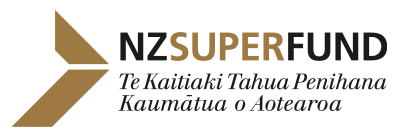

A standard against which the performance of a security, index, or investor can be measured. See details of the Fund's returns vs the Reference Portfolio and vs Treasury Bills here.
A debt investment with which the investor loans money to an entity (company or government) that borrows the funds for a defined period of time at a specified interest rate.
Generally taken to mean a very short-term investment earning interest from a highly-rated bank or an equivalent bank bill.
More commonly known as shares or stocks. Securities that signify ownership in a corporation and represents a claim on part of the corporation's assets and earnings.
Returns over and above the Treasury Bill return - the Government’s cost of debt.
An investment that is funded with cash to the full notional amount of the investment.
A private equity investment involves investing directly into private (non-listed) companies. The funds raised through private equity can be used to develop new products and technologies, to expand working capital, to make acquisitions, or to strengthen a company's balance sheet.
A low cost, passively managed and well diversified portfolio of listed asset classes that is consistent with the Fund achieving its return objectives without undue risk, i.e. fit for purpose. Conceptually, the Reference Portfolio comprises a 100% cash position (NZD) plus a set of risk premiums or excess returns that also sum to 100%. It is the portfolio we would have if we invested passively. See Reference Portfolio for an explanation of the concept and Returns vs Reference Portfolio for our performance against it.
Pools of money derived from a country’s reserves, which are set aside for investment purposes that will benefit the country’s economy and citizens.
Tilting is a value adding strategy where the mix of the Fund's market or currency exposures relative to the Reference Portfolio is changed to increase exposure to undervalued asset classes. See Added Value Activities and the Strategic Tilting Policy for more information.
Debt instruments issued by the government that mature in less than one year; the yield on these measures the cost of running a budget deficit.
Money provided to fund early-stage businesses with perceived long-term growth potential.